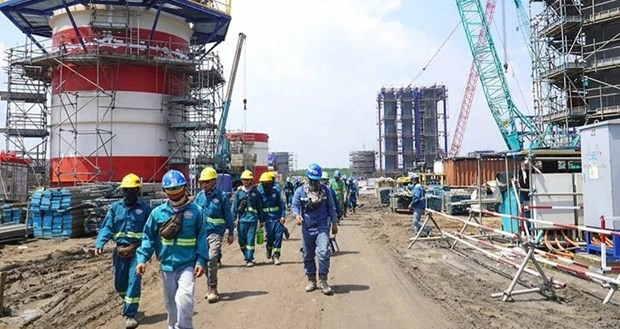The development of thermal power, including natural gas and liquefied natural gas (LNG), requires specific policies and mechanisms aimed at attracting investment as this industry plays a crucial role in ensuring the supply of electricity for the economy whilst promoting the energy transition, according to insiders.

Assoc. Prof. Dr. Dinh Trong Thinh of the Vietnam Academy of Finance underlined the importance of setting out a specific roadmap for developing clean energy models in the future amid Vietnamese energy demand continuing to increase each year, whilst the energy supply is becoming increasingly scarce.
According to Prof. Thinh, gas power sources can quickly connect to the national power grid. Additionally, they produce less CO2 emissions.
The development of the LNG industry will therefore help to ensure energy security, protect the environment, and maintain sustainable development, he added.
National Power Development Plan VIII for the 2021 to 2030 period with a vision towards 2045 (PDP VIII) has outlined the construction of 13 new LNG power plants with a total capacity of 22,400 MW by 2030, along with two more with a capacity of 3,000 MW by 2035.
So far, as many as 13 LNG power projects have been given in-principal approval for investment. Among them, a total of five projects are in the process of implementation.
Most notable, Nhon Trach 3 and 4 gas power plants in the southern province of Dong Nai are national key projects under the PDP VIII. They have been invested in by the PetroVietnam Power Corporation (PV Power), a subsidiary of the Vietnam Oil and Gas Group (PetroVietnam), with a total investment of US$1.4 billion. With a combined capacity of 1,500 MW, they are the first LNG power projects in the nation.
Prof. Thinh underlined the necessity at dealing with several issues related to infrastructure and policy mechanisms to attract investment sources for developing LNG power projects, saying that attention should be paid to conducting comprehensive planning of LNG import terminal projects in order to save resources. This should be done whilst promoting economic development and the domestic LNG market’s development.
The nation needs to promptly fine-tune the legal framework as a basis for deploying the construction and using infrastructure related to LNG, as well as ensuring transparent and effective management towards improving the confidence of investors in this industry, he noted.
Regulations related to procedures and investment processes in the laws on investment, bidding, construction, environmental protection, and planning therefore must be reviewed and amended, he added.
Source: VOV